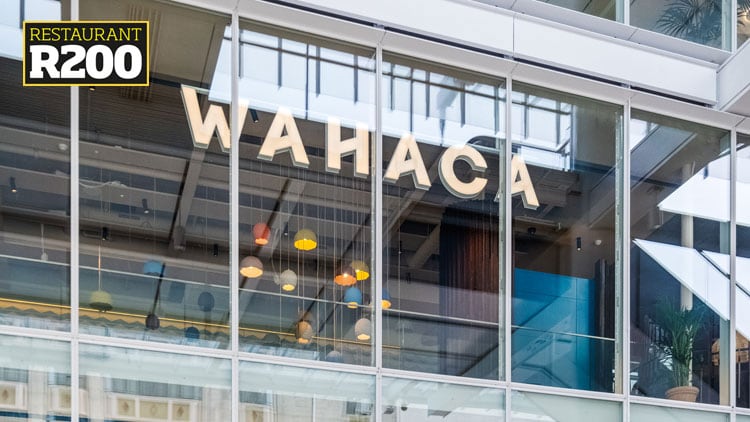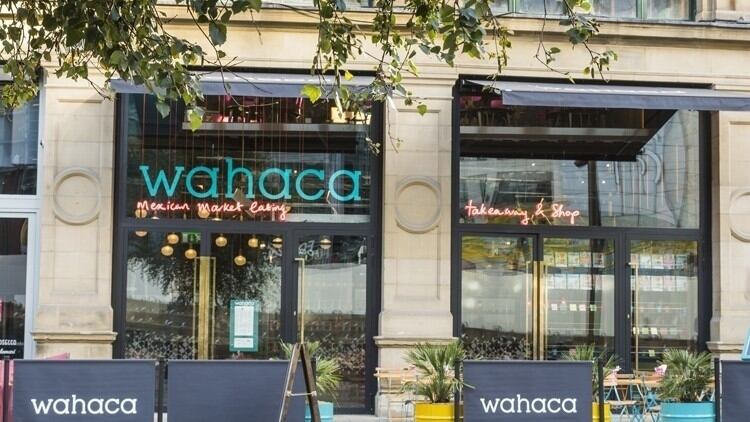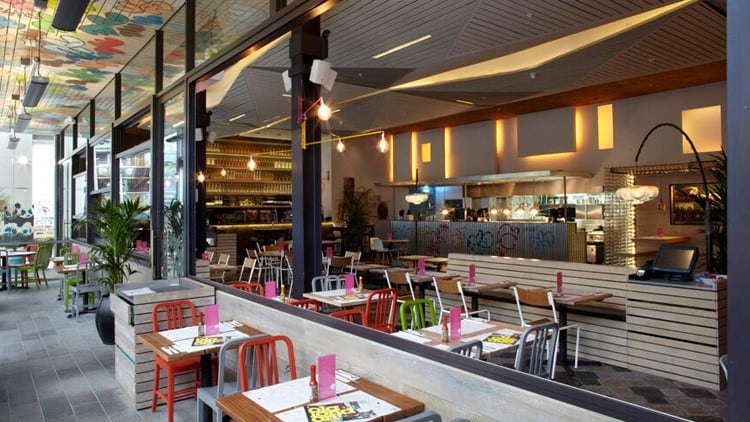“It feels like the clouds are starting to clear,” says Gemma Glasson, with a distinct note of confidence. The Wahaca managing director has every reason to be optimistic. This month the Mexican restaurant group is returning to the expansion trail with its first opening in six years; a huge 150-cover site at the Paddington Square development in London.
It’s certainly a significant step. When the group last opened a restaurant back in 2018, the landscape was very different. At the time Wahaca had an estate of close to 30 sites. The fallout of a highly publicised norovirus outbreak a couple of years earlier had dissipated, and the group was looking to the future with anticipation.
Then, in 2019, Wahaca found itself at the centre of a media storm after a waiter at one its London restaurants was told to pay part of the bill when his customers left without paying. The waiter was later reimbursed, with the group issuing a public apology and ‘clarification’ of its walkouts policy that expressly stated front of house staff would not be responsible for paying ‘any element of the bill’ in such instances going forwards.
A year later, the group was rocked further by the impact of the Covid-19 pandemic, which led to a Company Voluntary Arrangement (CVA) that saw it permanently close more than a third of its restaurants, eventually reducing its estate to just 13 sites.
In the intervening years, Wahaca has, like so many businesses across the sector, had to also grapple with the impact of inflationary pressures and the cost of living crisis. It hasn’t been easy sailing, but as the group’s most recent accounts attest, the directors ‘remain very pleased’ with its financial performance, which saw it report turnover of £39.7m in the 52 weeks to 25 June 2023.
Some may think that given the ongoing economic headwinds, perhaps this isn’t the best moment to be opening a new restaurant. Glasson, however, insists the time is right.
“We’re confident in where the fundamentals of the business are, and we’re optimistic” she says. “For us, [Paddington] represents an important inflection point after a number of years of difficulty.”
Wahaca ‘reimagined’
Glasson joined Wahaca several years ago having previously worked in transactions for a big accounting firm. Her career initially saw her join the group as head of projects and commercial and has seen her work through the business in roles including head of food and chief operating officer, before eventually becoming managing director. Paddington marks her first restaurant opening since joining the group.
“We’re well aware of how long it has taken us to open another restaurant,” she says. “But we see it as a positive. We’ve put so much focus and energy into making sure we get the right site.”
“We’ve always been looking,” adds Mark Selby, Wahaca’s co-founder and CEO, who originally launched the business in partnership with MasterChef winner Thomasina Miers back in 2007. “Wahaca is nearly 20 years old, and we want it to still be here in another 20 years’ time, so we don’t want to go into sites that aren’t right.
“For us, Paddington represents an important inflection point after a number of years of difficulty”
“Paddington has the scale and the visibility we need. It has risk, as every site does, but it feels like it’s a great space and opportunity for us.”
The opening not only reflects the group’s ambition to rebuild its estate, but it also marks the establishment of what Glasson and Selby describe as ‘Wahaca reimagined’ – an evolution of the concept that’s designed to bring the brand back closer to its Mexican inspiration.
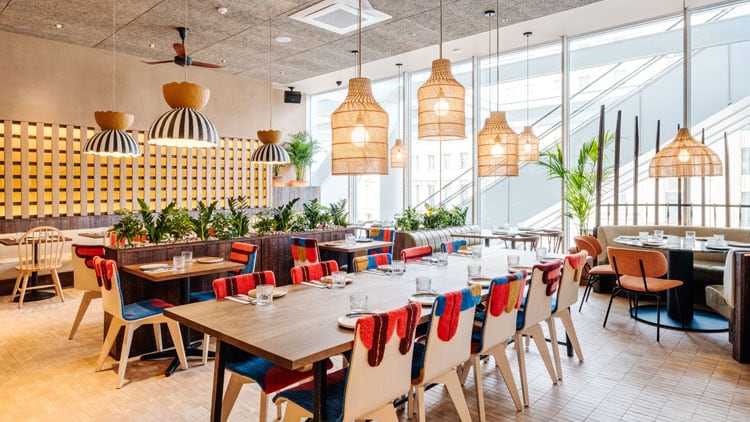
“We want to lean more into the cultural feel of Mexico and get that across all touchpoints within the restaurant,” says Selby, explaining the development. To that end, the Paddington restaurant’s interiors have a noticeably softer, more modern colour palette of earthy tones that are meant to ‘reflect the vibrancy and style of contemporary Mexican gastronomy’. The new look, which has already been trialled at the group’s recently refurbished Wimbledon restaurant, is intended to ‘channel the colours, craftsmanship and design elements’ of Oaxaca, the city in southern Mexico that served as the original inspiration for Selby and Miers when they launched the business, and also includes new crockery and art pieces sourced from the city.
“We’ve spent a lot of time going back to Oaxaca in the last two years and immersing ourselves in the culture, the art and the food, and now we’re bringing those experiences into our restaurants,” adds Glasson. “Wahaca needs to keep growing and moving with the times. That’s what people expect and want, and any future restaurants will be developed with this more curated view.”
The menu at Paddington has also had an overhaul. While the group’s signature offer of Mexican-inspired small plates – tacos, tostadas and quesadillas – remains present, there’s also a range of larger sharing dishes that, for now, will be served exclusively at the new restaurant. They include slow-roasted lamb shoulder served with jalapeño crema, hot salsa and birria broth; roasted and dressed chimichurri cauliflower with charred tomato salsa and salsa macha; and a whole seabass cooked on the grill with achiote and served with a charred pineapple salsa and salsa macha.
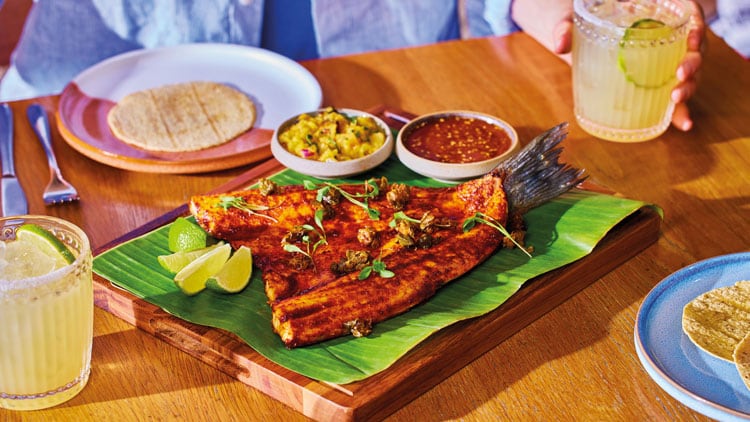
“For me, success is about how we convince people to have a more confident and better understanding of Mexican food,” says Selby. “As a cuisine, it’s hugely on the up, but it still lacks profile over here. Diners are often familiar with burritos and fajitas, but they don’t recognise a lot of our dishes. That’s where the challenge is for us.”
While fajitas don’t actually feature on the Wahaca menu, burritos have long been a staple dish despite them often being more synonymous with Tex-Mex cuisine. “We’re constantly working on how to get our guests to try something that isn’t a burrito,” continues Selby. “We go back and forth on whether it should even be on the menu, and that’s a big motivator for us right now. We’re super confident in our wider menu and we want to push it.”
Orgulloso
Evolving the Wahaca concept hasn’t been the only focus for Glasson and Selby. Since the pandemic, the pair have also been working extensively on a new and progressive employee value proposition. “One of the big advancements we’ve made is around conveying the pride of Mexico and the heritage of our business through our teams,” says Glasson. “We call it Orgulloso.”
The programme, the name of which translates as ‘proud’ in Spanish, was developed from employee feedback collected internally from staff during lockdown. “We asked our employees to write about their motivations and often it wasn’t just about money. Many made reference to their team and the fun and camaraderie of working together, and we harnessed that.”
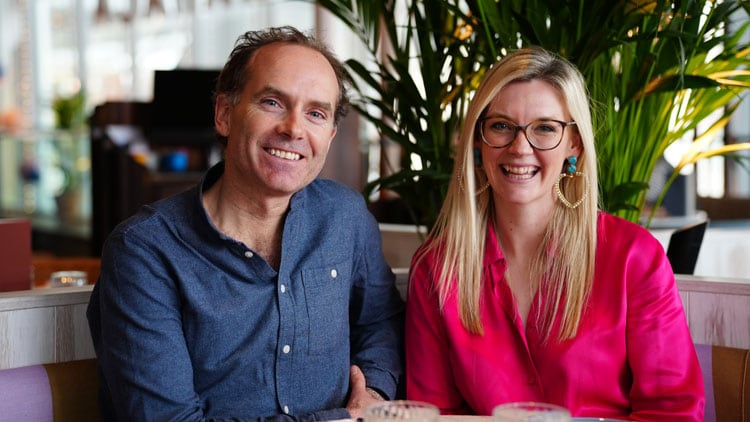
As part of the initiative, a new scheme has been introduced to recognise an employee’s length of service that sees the group pay for all staff across the business to go to Mexico for a week after they’ve been employed there for two years. “We want people to have a great time and bring that back and share the first-hand knowledge they’ve learnt and talk to our customers about it,” continues Glasson. “The hope is that it ignites passion internally, which then reverberates externally.”
Other benefits include offering a staff sabbatical of four week for those who have worked for the group for five years; and the introduction of an annual Fiestaval, where all of Wahaca’s restaurants are closed for one day each summer so that staff can attend a free festival hosted by the business.
“It’s about ensuring we show we’re a business that cares,” adds Glasson, noting that the group’s employee turnover rate has now fallen to a ‘historic low’ of 45%.
Driving innovation through sustainability
Sustainability is also singled out by both Glasson and Selby as being a key driver of innovation across the Wahaca business. From the beginning, Selby and Miers were fixed on wanting to prove that they could create a ‘truly sustainable’ multi-site restaurant business. Back in 2016, Wahaca became the first UK restaurant group to be certified as carbon neutral. Since then, it has been committed to reducing its carbon outputs on average by 4.2% per annum with the goal to reach net zero by 2030.
“It’s key to what we do,” says Glasson. “Whereas a lot of operators innovate through tech, we’re looking at how sustainability leads us into a space that generates creativity.
“It’s about leveraging ideas and working with our teams and suppliers to do interesting things.”
“Whereas a lot of operators innovate through tech, we’re looking
at how sustainability leads us into a space that generates creativity”
Notable steps taken in recent years by the group include the introduction of carbon labelling on menus, which allows diners to see the carbon impact of each dish they order; ensuring 50% of the menu is vegetable based; reducing the amount of takeaway packaging used and using compostable materials like bagasse, which is made from sugar cane fibres, to make them; and, perhaps most notably, choosing to take its steak taco dish off the menu because of its high carbon footprint. Other initiatives currently being worked on include bringing regenerative farming into the group’s supply chain; and the rollout of a ‘carbon negative’ beer, which is brewed with 100% recaptured and reused hops, across the restaurant estate.
Sustainability is also at the forefront of the group’s restaurant design. Paddington, for example, has been built with ‘sustainability in mind’ and features an all-green energy, electric-only kitchen; and a bar made from reusable hemp bricks.
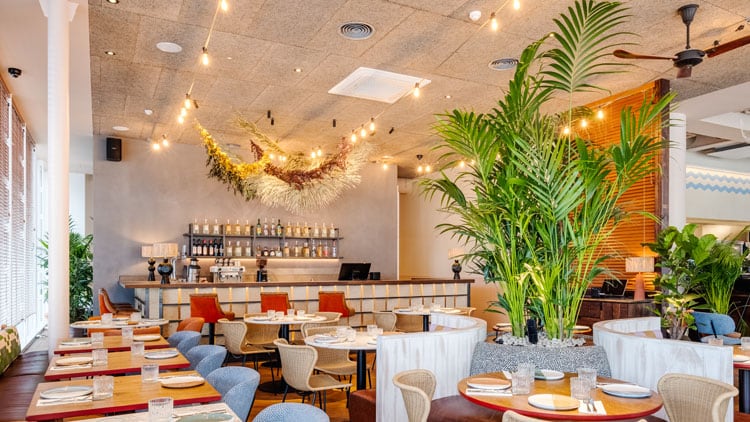
“We’re constantly looking to challenge ourselves and play with different elements of the business,” says Selby. “Invariably what happens is it doesn’t work, but it throws up something else that we navigate towards and explore. We know we don’t get much customer loyalty because of it, but our teams like it and it’s important to our values as restaurateurs.
“We want to do things ahead of the curve and take the industry with us.”
Making sure the price is right
One of Wahaca’s enduring successes over the years has been its ability to retain a sense of uniqueness within the wider casual dining space. The group remains the largest Mexican-focused restaurant brand in the UK; with the only other contender, Chiquito, positioned more as having a Tex-Mex theme.
“It’s a complex food to cook and it’s hard to scale,” says Glasson, when asked about why there aren’t more multi-site operators competing in the Mexican restaurant space. “That isn’t to say more mainstream cuisines like Italian and Spanish aren’t complex, but Mexican food involves so many indigenous ingredients and it needs a lot of work and time to ensure consistency.”
Selby adds that cost is also a barrier to operators. “To get it right is unbelievably complex,” he says. “Everything we serve is prepared fresh in our restaurants every day. We often need to have seven chefs in the kitchen, and they cook with more than 200 ingredients a day.
“That’s quite a big financial investment and it’s hard to get the menu prices right so that diners come in.”
Pricing is singled out by Selby as being a consistent challenge for Wahaca, particularly in recent years as the group has navigated the impact of inflation on energy costs. “The scary thing about those is if they don’t come down, what do you do about your own prices,” he says. Wahaca held off on introducing prices rises for more than a year, which caused a big hit to its bottom line.
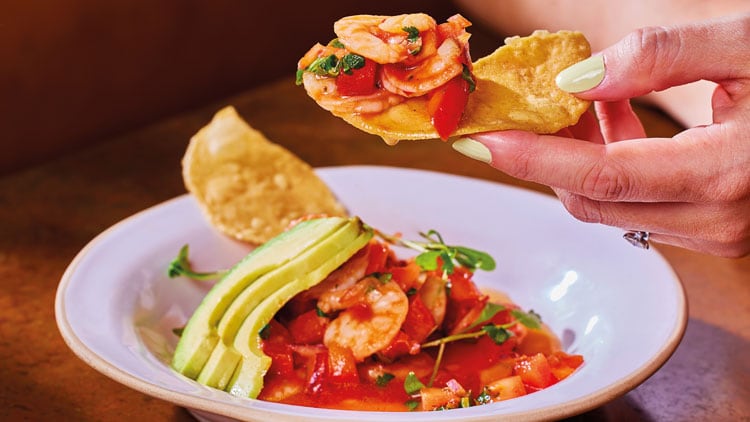
In its latest financial report, in which a pre-tax loss of £0.7m was declared, the group said it was forced to lock in ‘abnormally high utility costs’ until September 2023, which it classified as a one-off impact in the accounts. “If I’m honest, every day feels like a boxing match in this industry right now,” continues Selby. “We’re slowly emerging through it, though. We’ve been waiting to make sure we know what this elevated Wahaca looks like, and now we’re positive about it and ready to push it out.
“Businesses need to take that time. You can have success through investing in experience and team. It might be slower, but hopefully it’ll have more bones to it.”
Less is more
Rising energy prices are just of several operational challenges Wahaca is having to contend with right now. Another is the ongoing uncertainty in consumer behaviour. “It’s so hard to find some consistency, particularly compared to pre-Covid times,” says Glasson. “That’s really hard to navigate, especially with new restaurants as it’s difficult to predict topline sales.
“There’s far less consistency and bankability and you need to be prepared for various scenarios. People are more discerning about where they’re eating out and how much they’re spending. We recognise that and we know we have to show up every time.”
While Paddington’s doors have only just opened, further expansion is also on the group’s mind and not just in the capital, with Wahaca’s regional sites in Brighton, Edinburgh and Cardiff all either ‘tracking back to’ or ‘far exceeding’ Covid levels.
“We always say we’d love to do one to two restaurant openings a year, and we’re very confident”
“The Wahaca business has a certain size to it. It lends itself to London, but there will be a point when we get too saturated. We’re not there yet and we see there being more scope in the capital, but we also want to get back into expansion outside London.”
Glasson won’t be drawn definitively on how big she thinks Wahaca could become, but she does suggest that it would be great to have brought the group’s estate back up to 20 sites in time for its 20th birthday in 2027. “It has a nice ring to it,” she adds, with a smile. “But it’s not about numbers, it’s about how well our current estate is doing.
“We always say we’d love to do one to two restaurant openings a year, and we’re very confident. But we’d rather operate fewer sites that are doing well than have more that don’t live up to our standards.”


